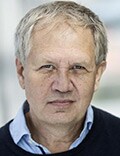Investigators are hoping a new "mega-analysis" puts a final cap on the ongoing controversy over whether antidepressants, particularly selective serotonin reuptake inhibitors (SSRIs), are effective for depression.
The review of 15 studies, with more than 3300 patients, showed that compared with those who received placebo, participants without early adverse events (AEs) who received either of the SSRIs citalopram (multiple brands) or paroxetine (multiple brands) had significantly greater reductions in symptoms, as assessed with the Hamilton Depression Rating Scale (HDRS) depressed mood item.
Previous research suggests antidepressants' superiority is "merely a psychological consequence of the side effects of the drugs enhancing the expectation of improvement," the investigators write.
However, the new analysis showed that patients who had early AEs and who were receiving one of the active drugs also had significantly greater reductions in symptoms vs their counterparts who were taking placebo. This suggests that "the severity of the adverse events did not predict response," the investigators write.
"I think, once and for all, we've answered the SSRI question. And we have effectively rebutted the side-effects theory," principal investigator Elias Eriksson, PhD, professor of pharmacology at the University of Gothenburg, Sweden, told Medscape Medical News.

Dr Elias Eriksson
And the number one take-away message for clinicians? "It's that SSRIs work. They may not work for every patient, but they work for most patients. And it's a pity if their use is discouraged because of newspaper reports," he said.
The findings were published online July 25 in Molecular Psychiatry.
Major Controversy
"The possible existence of a specific pharmacological antidepressant effect has become one of the major controversies in current medicine," write the investigators.
In 2010, a study by University of Pennsylvania investigators that was published in JAMA suggested that although patients with severe depression may significantly benefit from antidepressant treatment, there would be little to no benefit for those with mild to moderate depression compared with receiving placebo.
The arguments boiled over in 2012 when the news program 60 Minutes broadcast an episode with psychologist Irving Kirsch, PhD, associate director of the Program in Placebo Studies at Harvard Medical School, Boston, Massachusetts.

Dr Irving Kirsch
The episode featured Dr Kirsch and his book The Emperor's New Drugs, which claims there are no clinical differences in the effectiveness of antidepressants vs placebo in depression. This was followed by a terse statement from the American Psychiatric Association (APA) countering the claims.
Then incoming President-elect of the APA Jeffrey Lieberman, MD, Columbia University, New York City, told Medscape Medical News at the time that that information was "misleading to people and potentially harmful to those who really suffer from depression."
"There has been considerable [news] in and out of the United States suggesting that SSRs are not effective. On the one hand, patients get these drugs from doctors, but on the other hand, they're reading the newspapers," said Dr Eriksson. "So we wanted to clarify these matters."
Focus on Depressed Mood
The investigators examined patient-level data for company-sponsored and US Food and Drug Administration–registered, placebo-controlled, randomized trials of major depression in adults in which the HDRS was used to measure the effects of paroxetine or citalopram.
Common AEs from SSRIs, including weight change, insomnia, sexual dysfunction, and gastrointestinal problems, are also possible depression symptoms listed in the total sum rating of the HDRS-17 (HDRS-17-sum).
Therefore, the researchers chose to focus on just one item from the HDRS-17 as the primary outcome: depressed mood.
The analysis included 2759 participants who completed trials in which paroxetine was compared with placebo. Of these, 938 patients received placebo; 421 received paroxetine and had no "early" AEs, defined as AEs that occur within the first 2 weeks of treatment; and 1399 received paroxetine and did have early AEs.
There were also 585 patients who completed trials comparing citalopram with placebo. Of these, 132 patients received placebo, 93 received citalopram and had no early AEs, and 360 received citalopram and did have early AEs.
Results showed that in the active-treatment groups, with and without AEs, there were significantly greater reductions in scores on the HDRS depressed mood measure at 6 weeks compared with the placebo groups.
Table. Paroxetine, Citalopram vs Placebo for HDRS Depressed Mood
| Patient Group | Effect Size | P Value |
|---|---|---|
| Paroxetine, without early AEs, vs placebo | 0.33 | < .001 |
| Paroxetine, with early AEs, vs placebo | 0.48 | < .001 |
| Citalopram, without early AEs, vs placebo | 0.49 | < .001 |
| Citalopram, with early AEs, vs placebo | 0.31 | .002 |
"The finding that both paroxetine and citalopram are clearly superior to placebo...when not producing adverse events, as well as the lack of association between adverse event severity and response, argue against the theory that antidepressants outperform placebo solely or largely because of their side effects," write the investigators.
In addition, "our results indirectly support the notion that the two drugs under study do display genuine antidepressant effects caused by their pharmacodynamics properties."
The paroxetine-treated patients with early AEs did have a small yet significantly greater reduction in symptoms than those receiving the drug who did not have early AEs (effect size, 0.15; P = .008). There were no significant differences between the citalopram-treated patients with or without early AEs.
Clinically Meaningless?
Commenting on the findings for Medscape Medical News, Dr Kirsch said that even if there is an effect from antidepressants, that effect is so small as to be clinically insignificant.
Dr Eriksson countered that perhaps Dr Kirsch investigated doses that are too low to be effective. He also noted that using the HDRS-17-sum "has been severely criticized. That measure has been shown to not be reliable," which is why they chose to focus just on the scale's depressed mood item. "And we did have an impressive, robust difference between active drug and placebo," he added.
Dr Kirsch went on to note that the new analysis "was interesting" but questioned the investigators' not using the full HDRS scale.
"To use just one item is unusual," he said. But more important was that the difference "of about half a point between placebo and the active drugs is so tiny as to have no clinical meaning. Doctors evaluating a patient would see no real change at all."
The question comes down to this: At what extent is a clinically meaningful difference "really due to the drug or to patients realizing they're receiving the active drug rather than the placebo, hence the placebo effect?" said Dr Kirsch. "They found evidence that that may be partially the case with one of the two drugs assessed," he added.
"However, from their findings, at least part of this tiny difference between drug and placebo may actually be due to something not related to side effects. And that may very well be, but we don't have enough data right now to really know for sure," Dr Kirsch said.
"The bottom line is, what is the cause of this miniscule, clinically meaningless difference? What one ought to do is look at side-effect profile and health risks and then use the safest of the alternative treatments available. And that's certainly not an SSRI."
The study was supported by the Swedish Research Council, AFA Insurance, the Bertil Hållsten's Foundation, the Söderberg's Foundation, the Sahlgrenska University Hospital, and the Swedish Brain Foundation. Dr Eriksson has previously been on advisory boards and/or has received speaker's honoraria and/or research grants from Eli Lilly, Servier, GlaxoSmithKlline, and H. Lundbeck. One of the other study authors has received speaker's fees from Servier. The remaining two authors and Dr Kirsch have disclosed no relevant financial relationships.
Mol Psychiatry. Published online July 25, 2017. Abstract
Follow Deborah Brauser on Twitter: @MedscapeDeb . For more Medscape Psychiatry news, join us on Facebook and Twitter .
Medscape Medical News © 2017
Cite this: Final Word? Antidepressants 'Do Work' - Medscape - Aug 29, 2017.









Comments